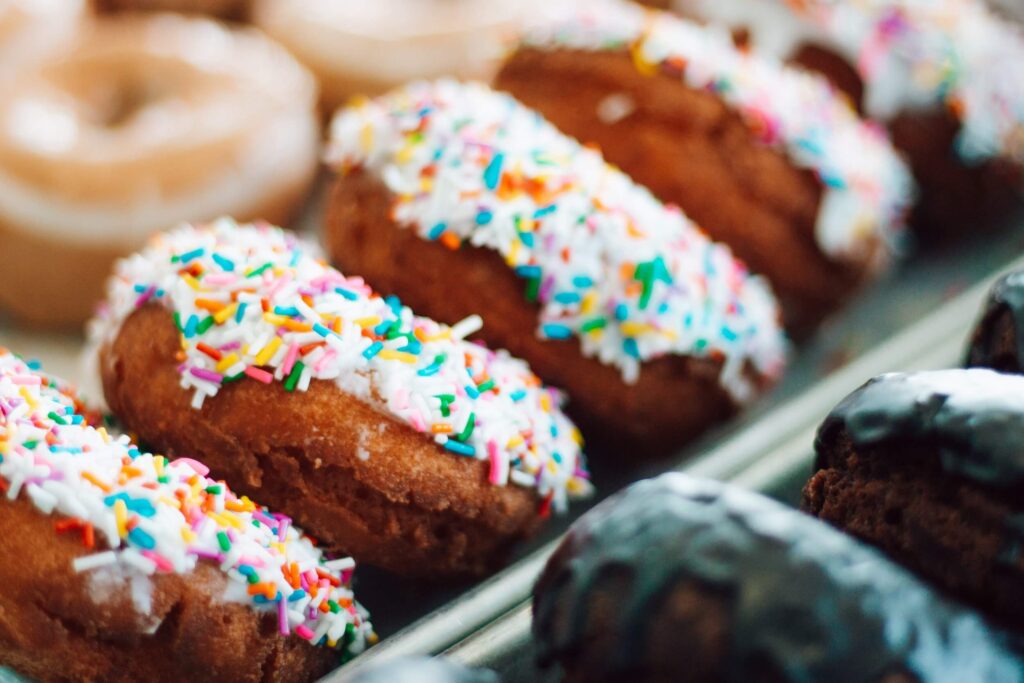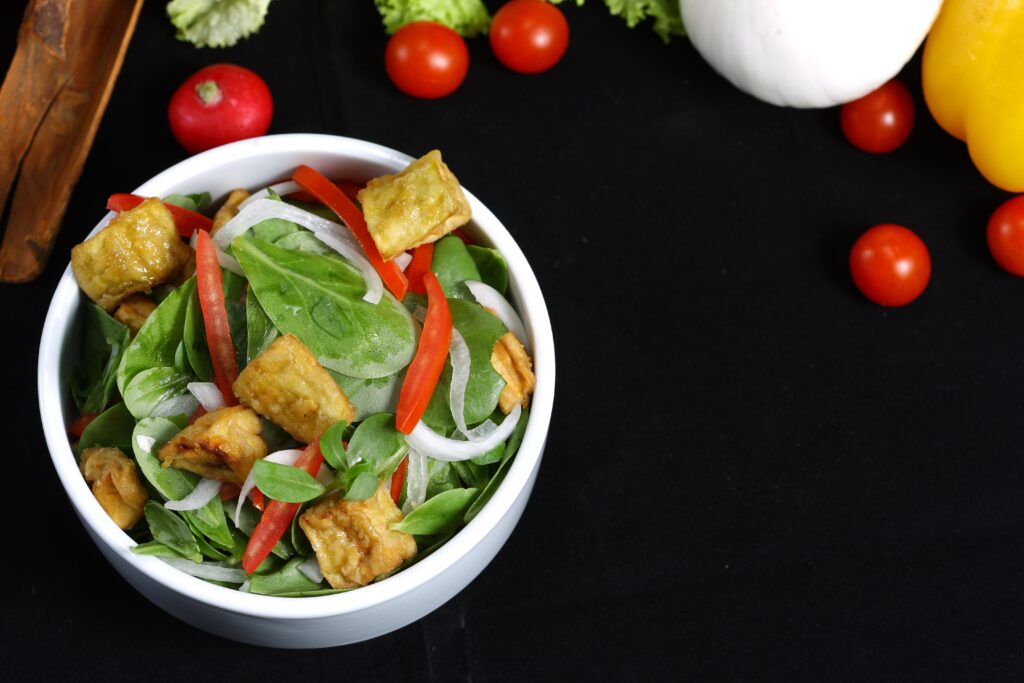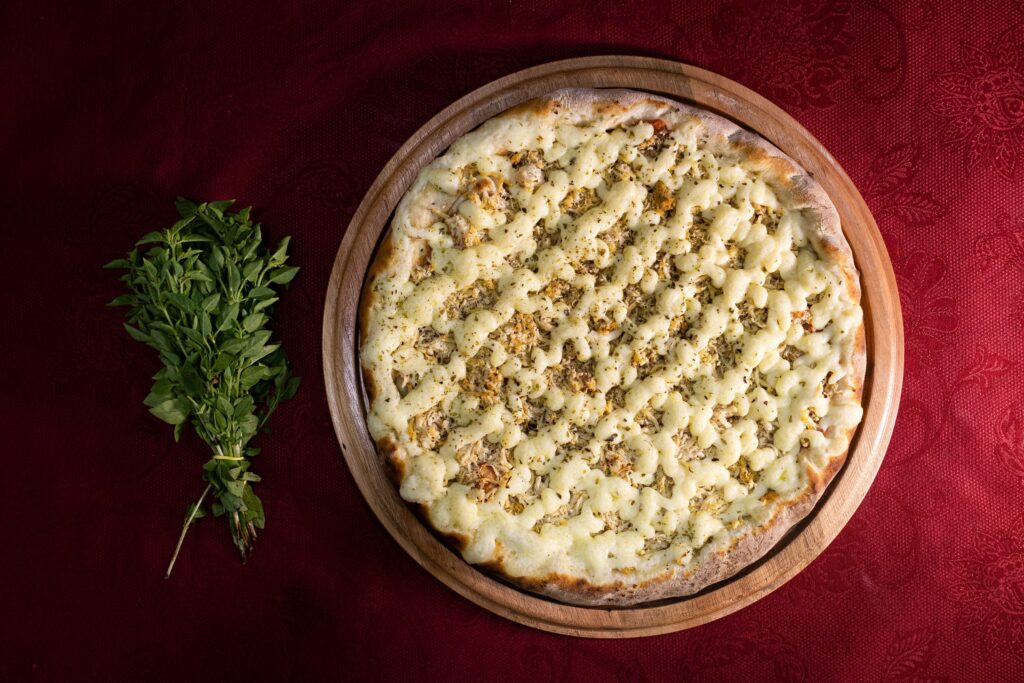We’ve all been there. You’re just going about your work, and suddenly, a compulsive desire for a cheesy slice of pizza (or double chocolate sundae) grabs hold of your brain and won’t let go until you do its bidding. There is a gamut of reasons for what brings on these cravings, and while food binges are obviously unhealthy, a black or white approach may not be the answer to this dilemma. Let’s take a closer look at what triggers these cravings and get into some research-backed hacks on how to tackle them.

Highlights
- Craving is when you feel an intense, uncontrollable urge to have a specific food. While this is often confused with hunger, it usually has little to do with it and can be caused by poor diet and hydration, stress, lack of sleep and an imbalance in hormones,
- One of the most important ways to beat these cravings is to identify their root cause and substitute what you eat with healthy options,
- Other ways include taking a brisk walk, playing a game of Tetris and thinking long-term about your health, among other things, to overcome sudden cravings.
What Are Cravings?
Craving is when you feel an intense, uncontrollable urge to have a specific food. While this is often confused with hunger, it usually has little to do with it. Research suggests that more than 90% of people experience some form of food craving. But what brings on these cravings in the first place? Here are some possible causes:
Your hormones could be out of whack
An imbalance in the ‘hunger and fullness’ hormones leptin and ghrelin can be the cause of food cravings in some people. Hormonal fluctuations in pregnancy and menstruation are also known to intensify cravings.
You’re not getting enough shuteye
Inadequate high-quality sleep can upset the hormones in charge of regulating hunger, which can trigger food cravings, especially in the evenings.
Diet and poor hydration
Protein and fibre help you feel full longer. If your diet is lacking in these nutrients, you could end up feeling hungry or having cravings more often. Not getting enough fluids is another trigger for cravings in some people.
You’re stressed
Stress makes your cortisol levels shoot up. Cortisol is one of the main accused of bringing on cravings and binge-eating episodes.

7 Hacks to Beat the Mid-Work Cravings
While we all experience food cravings from time to time, they’re known to set off binge-eating episodes that can lead to obesity, eating disorders and a host of issues that affect both physical and mental health. Below are some research-proven ways to address food cravings:
Identify the root cause and substitute with healthy options
As we’ve already seen, your cravings may stem from a number of causes, not all of them to do with bad eating habits or a ‘sweet tooth.’ Cravings that aren’t habitual may just be the body’s way of telling you what it needs. So, a sugar craving may actually be a sign of hormonal imbalance (which explains the chocolate and PMS connection), and salty cravings may suggest that you’re dehydrated.
Researching your craving and understanding what it means can be a great first step in giving your body healthy alternatives and curbing the cravings altogether. So if chocolate is what you want, go for a square of dark chocolate (75% or more cacao) instead. If it’s carbs that’ll do it, try some whole wheat pasta and organic cheese. You just have to get a little creative and have some patience while your taste buds adjust to the healthier options.
Stabilise your blood sugar
Whenever you’re dealing with low energy levels—mentally or physically—the most instinctive thing to do is reach for the quickest fix (sugar!) to stabilise blood sugar levels. The problem is that while sugar is an instant fix, it leads to a crash in blood sugar levels in a couple of hours, which brings on more sugar cravings. Sound familiar?
If you’re a fairly healthy person and do not have diabetes or any chronic blood sugar issues, you can break this cycle by making sure to eat before you’re actually feeling starved. This is when your sugar levels drop, and you reach for that quick fix. Instead, keep healthy snacks handy and make sure to have them about an hour before you’re actually hungry in order to prevent low blood sugar. Getting enough sleep and cutting down on caffeine are two other things you can do to keep your blood sugar levels stable and your mind craving-free.
Double up on foods that prevent cravings
Before you resort to Googling ‘how do I overcome intense food cravings’ or ‘stop chocolate cravings,’ focus on keeping your body happy. You can do this by making sure you’re feeding it essential nutrients—a balance of proteins, fibres, carbs, healthy fats etc.
Foods that are high in fibre can also keep you full longer, preventing those blood sugar fluctuations we just talked about. This way, your body needn’t send you into craving mode in order to have its basic needs met, and you can scratch at least one common cause of food cravings off your list!

Play Tetris for 3 minutes
What to do in the throes of a craving for chocolate lava cake? Instead of reaching for the food delivery app, download Tetris on your smartphone and play the video game! According to a study by the University of Plymouth, just 3 minutes of the game can make cravings (for food, cigarettes, drugs or sex) subside. Worth a try, right?
Wait 20 minutes
The whole thing about a compulsion is that it seeks instant gratification. So, waiting for a food craving to go away may seem like a pointless suggestion. But food cravings, while intense, tend to be short-lived. If you can find a way to distract yourself with an episode of your favourite sitcom or get on a call with a friend, you just might find that you’re no longer craving those fries!
Go for a brisk walk
Again, this is probably the last thing you want to do when you want to reach for that jar of Nutella, but research suggests that a brisk 15-minute walk can be just the thing you need to stop those cravings! Evidence suggests that short bursts of moderate-intensity exercise can make you feel more energised than a cup of coffee.
Think long-term
The next time your mind is hell-bent on visualizing a cheesy burger with a side of fries, try this instead: Imagine what this meal would do to your cardiac and overall health in the long run. Research tells us that this line of thinking activates the part of your brain that is associated with self-regulation and inhibitory control, making you much less likely to give in to the craving.
Conclusion
We all experience food cravings at some point. They can come on suddenly and make us act compulsively. Giving in to food cravings can lead to obesity, eating disorders and a ton of mental and physical health issues. But making up ‘food rules’ and being excessively disciplined may also not be the answer.
Food cravings can stem from several causes, and it’s important to understand the root cause before addressing them. With that said, several ways—some psychological and others that require physical effort—prevent and curb food cravings.
Disclaimer:The contents of this article are for general information and educational purposes only. It neither provides any medical advice nor intends to substitute professional medical opinion on the treatment, diagnosis, prevention or alleviation of any disease, disorder or disability. Always consult with your doctor or qualified healthcare professional about your health condition and/or concerns and before undertaking a new health care regimen including making any dietary or lifestyle changes.
References
- Gender-related Differences in Food Craving and Obesity – PMC
- Stress, cortisol, and other appetite-related hormones: Prospective prediction of 6-month changes in food cravings and weight – PMC
- Impact of insufficient sleep on total daily energy expenditure, food intake, and weight gain
- Association between water consumption and body weight outcomes: a systematic review
- Stress, cortisol, and other appetite-related hormones: Prospective prediction of 6-month changes in food cravings and weight – PMC








